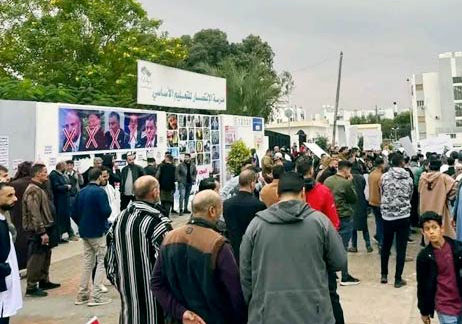Diplomatic missions are gradually returning to Libya
Published on 2023 July 24, Monday Back to articles
GNU Minister of Foreign Affairs, Najla el-Mangoush
Finally, some encouraging news from Libya There has been a recent resurgence of diplomatic missions and consulates resuming their operations in Tripoli. Amongst others the Gulf countries want to establish a strong presence on the ground in order to take advantage of the improving political situation to position themselves to participate in Libya’s future reconstruction efforts.
Influential international players are keen to restore their diplomatic presence in Tripoli. Russia, which previously opposed successive Tripoli-based administrations, recently appointed a new ambassador, Aydar Rashidovich Aganin (b.1967) who has been actively engaging with the GNU in providing technical assistance for organising elections. Moscow also decided to reopen its Consulate General in Benghazi. This has prompted many to speculate that Russia’s renewed involvement may prompt the US to reconsider reopening its embassy.
In September 2022 the incumbent Government of National Unity (GNU) signed an agreement with the US, UAE, Qatar, and Türkiye to construct new Tripoli embassies near the Mitiga International Airport. This initiative envisions the establishment of a diplomatic complex — probably protected by Turkish drones and anti-aircraft systems — close to Mitiga because it is currently the capital’s only functioning airport.
International efforts are focused on resolving Libya’s longstanding political deadlock and improving the security situation compared to post-2014 events blighted by: terrorist attacks; Khalifa Haftar’s Operation Dignity; and his subsequent unsuccessful assault against Tripoli. Western and Arab countries are therefore eager to signal their commitment to the country by re-establishing a diplomatic presence in both Tripoli and Benghazi. Previously — with a few exceptions such as Italy, Türkiye, and Qatar — most of these countries operated from Tunisia.
In the past week, German diplomats — who had been based in Tunisia for the past nine years — relocated to their workplace at the German Embassy in Tripoli. This drew praise from Minister of Foreign Affairs Najla el-Mangoush who viewed it as an indication of international optimism regarding Libya’s future and a result of her ministry’s ongoing dialogue with the diplomatic missions. In recent months she has visited Oman, Kuwait, Bahrain, and Saudi Arabia, and called for the return of embassies to Tripoli, visa facilitation, and the resumption of direct flights. These efforts resulted in delegations from the four countries visiting Libya to prepare to reopen their embassies.
Germany and the Netherlands have begun transferring embassy staff to Tripoli, with the latter reopening its embassy which closed in 2011. Morocco — which recently played a key role in negotiations between the House and the HCS by hosting the Joint Committee for the Preparation of Election Laws (a.k.a. 6+6 Committee) sessions — reopened its consulates in Tripoli and Benghazi after nine years. However, the date of restoration of the full embassy remains uncertain because it had previously been targeted by an Islamic State armed attack.
Meanwhile, Tripoli has raised the level of its diplomatic representation in Tehran from Chargé d’Affaires to ambassador. This reflects the desire to strengthen bilateral ties with Iran which reciprocated by sending a diplomatic delegation to reopen its Tripoli embassy after nearly a decade.
These positive developments are seen as constructive commitments to promoting peace and stability in Libya.
This excerpt is taken from our Libya Politics & Security weekly intelligence report. Click here to receive a free sample copy. Contact info@menas.co.uk for subscription details.


